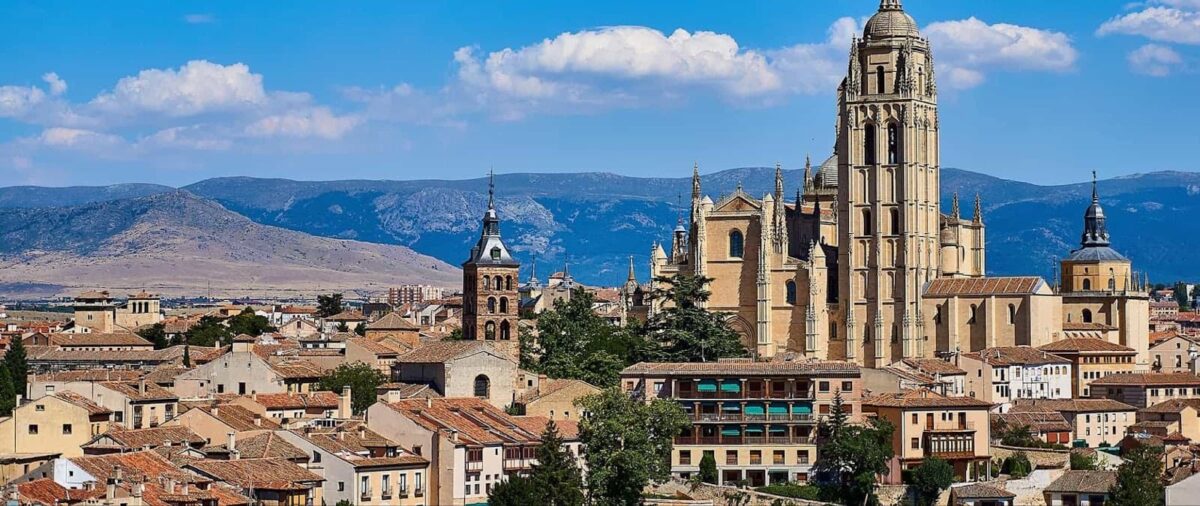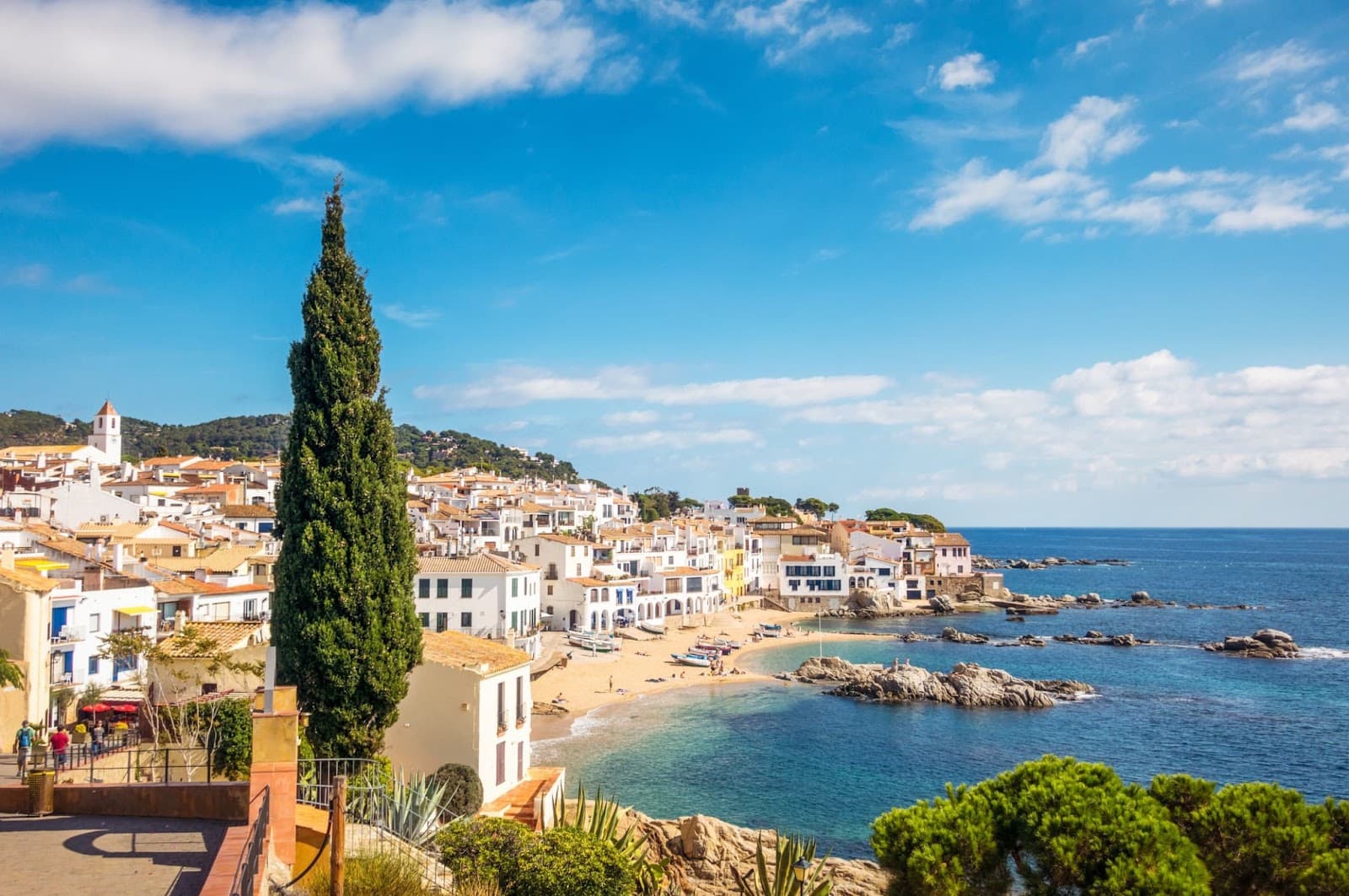Spain, with its vibrant culture, rich history, and diverse landscapes, offers an unparalleled opportunity for unlocking academic insights through travel experiences. Beyond its famous landmarks and picturesque scenery, Spain provides a unique classroom where students can immerse themselves in the language, culture, and history of the country, enriching their academic journey in profound ways.
Immersive Learning Opportunities
Traveling through Spain opens up a world of immersive learning opportunities that extend far beyond the boundaries of traditional classrooms. As students traverse the country’s diverse landscapes and historical sites, they engage in experiential learning that brings academic subjects to life in profound ways.
Exploring Ancient Ruins: Spain boasts a rich archaeological heritage, with ancient ruins scattered across the landscape. Students have the opportunity to explore iconic sites such as the Roman amphitheater in Tarragona, the Moorish palace of Alhambra in Granada, or the ancient city of Segovia. By walking through these ruins and witnessing firsthand the remnants of past civilizations, students gain a tangible understanding of history and archaeology. They can analyze architectural features, decipher inscriptions, and contemplate the lives of ancient peoples, enriching their understanding of historical contexts and civilizations.
Wandering through Medieval Towns: Spain is dotted with charming medieval towns that offer a glimpse into the country’s medieval past. From the cobblestone streets of Toledo to the fortified walls of Avila, students can immerse themselves in the medieval architecture, culture, and traditions that shaped the region. Exploring medieval towns provides students with insights into medieval society, politics, and religion. They can visit medieval castles, cathedrals, and marketplaces, gaining a deeper appreciation for the social and economic dynamics of the Middle Ages.
Witnessing Architectural Marvels: Cities like Barcelona and Madrid are renowned for their architectural masterpieces, ranging from Gothic cathedrals to modernist landmarks. Students can marvel at the intricate details of Antoni Gaudí’s Sagrada Familia, explore the royal palaces of Madrid, or stroll through the avant-garde buildings of Valencia’s City of Arts and Sciences. By studying these architectural marvels up close, students develop an understanding of architectural styles, techniques, and innovations. They can analyze the symbolism behind architectural elements, trace the evolution of architectural movements, and appreciate the role of architecture in shaping urban environments.
Through these immersive learning experiences, students gain a deeper understanding of academic subjects such as archaeology, art history, and urban planning. By engaging with historical sites, architectural landmarks, and cultural artifacts, students bridge the gap between theory and practice, fostering a lifelong appreciation for learning and exploration.
Language Acquisition
One of the most compelling advantages of traveling in Spain is the unparalleled opportunity for language acquisition. Immersion in Spanish-speaking environments offers a dynamic and immersive language-learning experience that accelerates proficiency and fluency.
Constant Exposure in Real-Life Contexts: Unlike traditional language classrooms, where learning is often confined to textbooks and exercises, traveling in Spain provides constant exposure to the Spanish language in real-life contexts. Whether conversing with locals, ordering food in restaurants, or navigating public transportation, students are immersed in authentic language situations where they must actively engage and communicate in Spanish. This immersive environment challenges students to think on their feet, expand their vocabulary, and refine their pronunciation, leading to rapid progress in language proficiency.
Cultural Integration and Cross-Cultural Communication: Beyond language skills, immersion in Spanish-speaking environments fosters cultural integration and cross-cultural communication skills. By interacting with locals, students gain insights into Spanish culture, customs, and social norms, enriching their understanding of the language and its cultural context. They learn to navigate cultural nuances, adapt their communication style, and build rapport with people from diverse backgrounds. These cross-cultural communication skills are essential not only for academic success but also for professional opportunities in an increasingly globalized world, where multicultural collaboration and intercultural competence are highly valued.
Authentic Learning Experiences: Traveling in Spain provides students with authentic learning experiences that extend beyond language acquisition. Engaging with native speakers exposes students to colloquial expressions, regional accents, and cultural idioms, enhancing their linguistic and cultural fluency. Whether participating in language exchanges, attending cultural events, or living with host families, students immerse themselves in the daily rhythms of Spanish life, deepening their connection to the language and culture in meaningful ways.
In conclusion, traveling in Spain offers students a transformative language-learning experience that goes beyond the confines of traditional classrooms. Through immersion in Spanish-speaking environments, students not only accelerate their language proficiency but also cultivate cross-cultural communication skills and gain insights into Spanish culture and society. This immersive approach to language acquisition prepares students to thrive in an increasingly interconnected world, where linguistic and cultural fluency are invaluable assets.
Cultural Insights and Perspectives

Experiencing Spanish culture firsthand offers students invaluable insights and perspectives that extend far beyond academic boundaries. Immersing oneself in the vibrant tapestry of Spanish traditions, customs, and lifestyles enriches students’ understanding of cultural diversity and fosters a broader worldview.
Participating in Traditional Festivals: Spain is renowned for its vibrant and diverse festivals, which serve as windows into the country’s rich cultural heritage. From the tomato-throwing extravaganza of La Tomatina to the solemn processions of Semana Santa, students have the opportunity to participate in these time-honored traditions and witness the collective spirit of Spanish communities. By joining in the festivities, students gain firsthand experience of cultural rituals, folklore, and communal celebrations, deepening their appreciation for cultural diversity and fostering a sense of belonging in the global community.
Savoring Regional Cuisines: Spanish cuisine is as diverse as its cultural landscape, with each region boasting its own culinary traditions and specialties. Whether indulging in the seafood paella of Valencia, savoring the pintxos of Basque Country, or sampling the gazpacho of Andalusia, students embark on a gastronomic journey that tantalizes the taste buds and awakens the senses. Through culinary exploration, students not only delight in the flavors and aromas of Spanish cuisine but also gain insights into the cultural significance of food as a cornerstone of Spanish identity and social life.
Engaging in Local Customs: Beyond festivals and food, students have the opportunity to engage in everyday customs and traditions that shape Spanish society. Whether attending flamenco performances, participating in siesta culture, or joining in the lively street life of Spanish cities, students immerse themselves in the rhythms and rituals of daily life. These immersive experiences offer glimpses into the values, beliefs, and social norms that underpin Spanish culture, encouraging students to question assumptions, challenge stereotypes, and cultivate empathy and understanding for different ways of life.
In conclusion, experiencing Spanish culture firsthand through festivals, cuisine, and customs enriches students’ academic journey by offering invaluable insights and perspectives that transcend disciplinary boundaries. By engaging in immersive cultural experiences, students develop critical thinking skills, empathy, and respect for cultural diversity, preparing them to navigate an increasingly interconnected and multicultural world with confidence and compassion.
Integrating Travel Experiences into Academic Studies
Educators have the opportunity to harness the transformative power of travel experiences in Spain by seamlessly integrating them into academic studies. By incorporating travel itineraries, cultural excursions, and language immersion programs into curricula, educators can create dynamic and immersive learning environments that inspire curiosity, creativity, and lifelong learning among students.
Incorporating Travel Itineraries: Integrating travel itineraries into academic studies allows educators to design comprehensive learning experiences that blend classroom instruction with real-world exploration. By strategically planning visits to historical sites, museums, and cultural landmarks, educators provide students with firsthand encounters that complement and enhance classroom learning. Whether tracing the footsteps of ancient civilizations in Toledo, exploring the artistic treasures of the Prado Museum in Madrid, or experiencing the surreal architecture of Salvador Dalí in Catalonia, students embark on educational journeys that bring academic concepts to life and deepen their understanding of course material.
Organizing Cultural Excursions: Cultural excursions offer students the opportunity to immerse themselves in Spanish culture and society, fostering cross-cultural understanding and appreciation. Educators can organize guided tours, cultural workshops, and interactive experiences that expose students to diverse aspects of Spanish life, from traditional crafts and performing arts to contemporary social issues and cultural trends. By engaging with local communities and cultural experts, students gain insights into the lived experiences and perspectives of the Spanish people, enriching their academic studies with firsthand knowledge and cultural insights.
Implementing Language Immersion Programs: Language immersion programs provide students with intensive opportunities to practice and improve their language skills in authentic contexts. Educators can collaborate with language schools, universities, and local organizations to design immersive language experiences that complement academic coursework and enhance language proficiency. Whether participating in homestays with Spanish families, attending language classes at local institutions, or engaging in language exchanges with native speakers, students benefit from immersive language environments that accelerate language acquisition and cultivate cross-cultural communication skills essential for academic and professional success.
Fostering Interdisciplinary Connections: Assignments such as reflective journals, research projects, and multimedia presentations enable students to synthesize their travel experiences with academic concepts, fostering interdisciplinary connections and deeper engagement with course material. By encouraging students to critically reflect on their experiences, analyze cultural phenomena, and make connections across disciplines, educators promote holistic learning that transcends disciplinary boundaries and prepares students to navigate complex global challenges with creativity and insight.
In conclusion, integrating travel experiences into academic studies offers students a transformative educational journey that inspires curiosity, cultivates creativity, and fosters lifelong learning. By seamlessly blending classroom instruction with real-world exploration, educators create dynamic learning environments that empower students to explore, discover, and connect with the world around them in meaningful and impactful ways.
Conclusion
In conclusion, unlocking academic insights through Spanish travel experiences offers students a transformative educational journey that transcends traditional boundaries. By immersing themselves in the language, culture, and history of Spain, students gain not only academic knowledge but also invaluable skills and perspectives that prepare them to thrive in an increasingly interconnected world.
